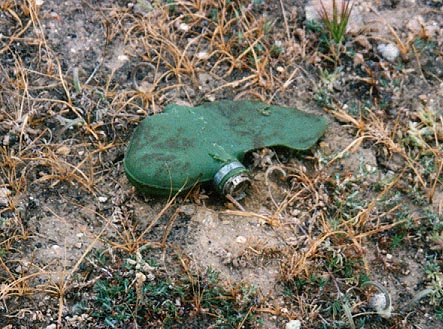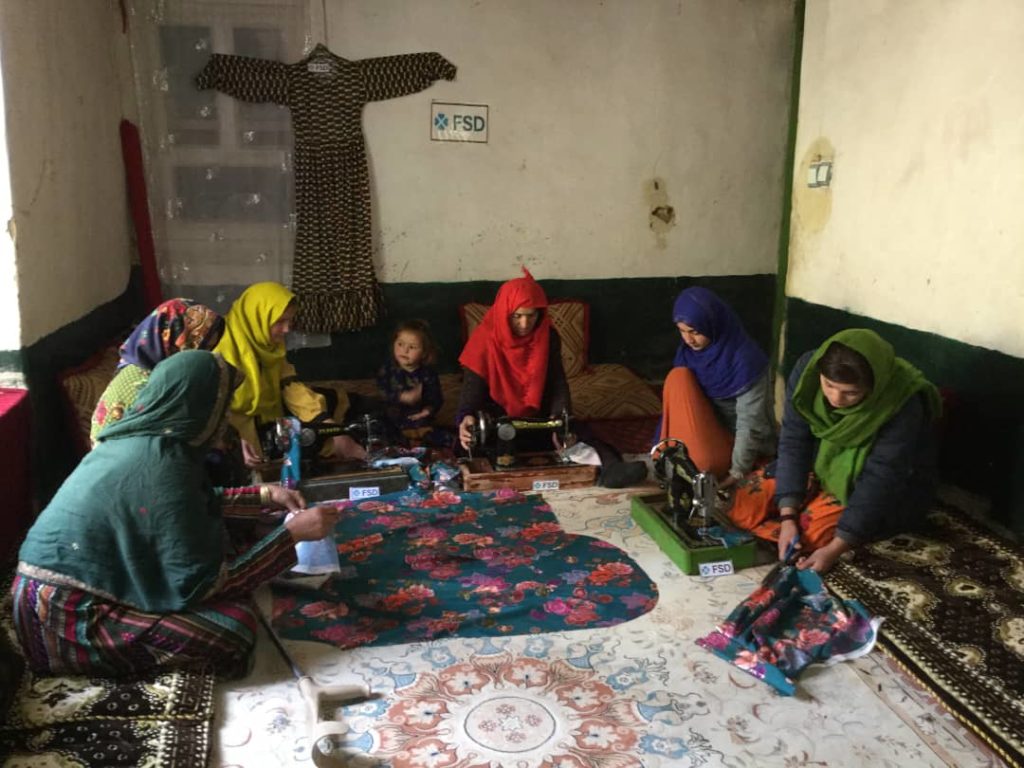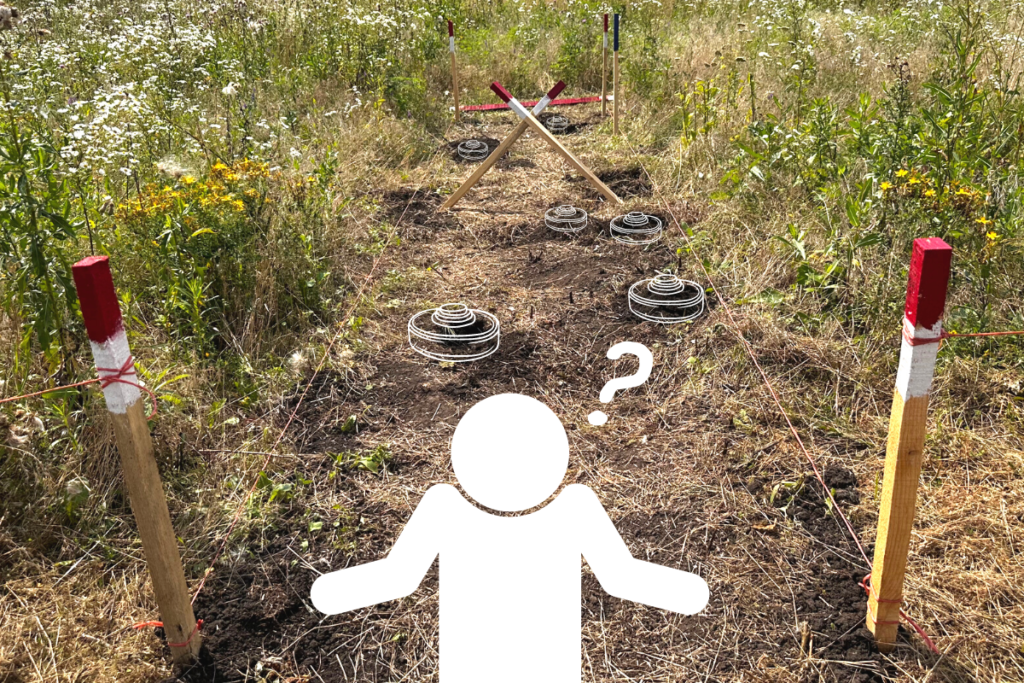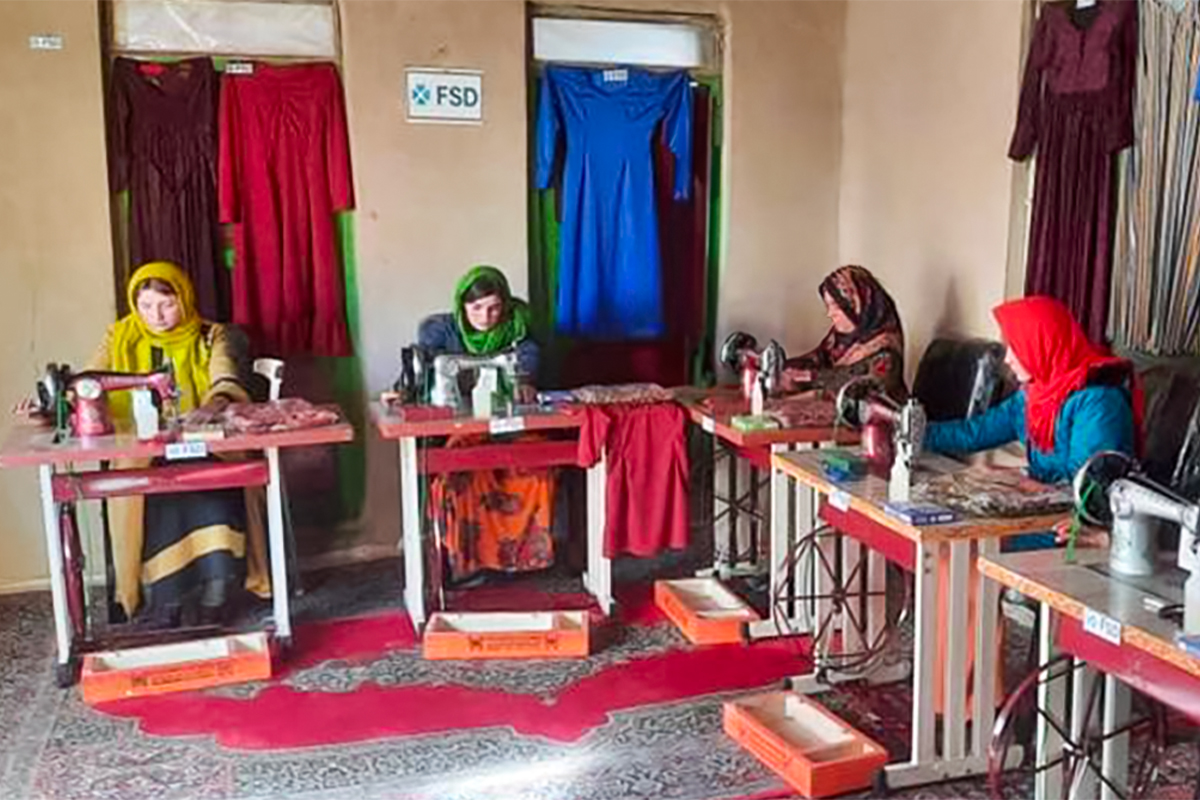Hnfna is just 18 years old and lives in the steep, isolated mountains of Badakhshan in northern Afghanistan. When she was just a little girl, an accidental explosion seriously injured her while she was collecting firewood in the forest. At the time, Hnfna was unaware that she was entering a minefield, an omnipresent danger in the vicinity of her village. The region is littered with PMF-1 anti-personnel mines, nicknamed “butterfly mines”, dropped in the thousands from Soviet helicopters during clashes with the Mujahedin in the 1980s.
“Walking has become a struggle for me”, explains Hnfna. “I can’t walk long distances or work”. She lives with her younger sister and her parents, who have done their best to provide for her needs until now. Today they are old and her father, who is blind, can no longer work. As a result, Hnfna is left with the sole responsibility of running the household. But with no education and no job prospects, the task seems impossible, and her family is now sadly known as the poorest in the village.

PFM-1 or “butterfly mines” are small anti-personnel mines so light that they can be washed downhill in the mountains when it rains. The threat can therefore be found anywhere.
Active in the region for many years, FSD’s clearance and risk education teams have witnessed the extremely precarious situation in which survivors of mine accidents and their families find themselves. The relations maintained by our teams with the local authorities, even after the Taliban came to power, enabled FSD to set up a socio-economic livelihood assistance programme for these families.
In recent months, Hnfna and four other mine explosion survivors have received sewing training and the materials they need to begin making clothes and household items, which they can manage despite their injuries and limitations.

“I’m grateful to be learning sewing”, explains Shaknambibi, a 47-year-old mother of four. I want to regain a place in society and be recognised for my skills rather than defined by my disability”.
The impact of this assistance project is elevated higher in this context, where in addition to the injuries caused by the accidents, these women also have to overcome major obstacles linked to cultural and social norms that limit their access to support services and employment.
Thanks to the invaluable support of our private donors, FSD is honoured to be able to give a second chance to those whose lives have been disrupted by these disastrous remnants of war.

What if you were in the minefield?
Are you familiar with the steps involved in working safely in a minefield? And can you identify them in the right order? It’s up to you! But beware, every step can be fatal.

Final training before deployment
Our demining teams in Ukraine are resuming their activities after the winter break imposed by the snow and cold. This period is an opportunity for deminers to review key procedures.



